Coconut oil is a type of cooking oil that has a variety of uses and has become a pantry staple for its myriad of health benefits. From cooking to skincare, the uses for this elixir seem endless. But as you reach for that jar of oil buried at the back of your pantry, you might find yourself wondering: does coconut oil expire and go bad over time?
We'll dive deep into the truth behind this oil's shelf life, bringing you all the facts you need to know. We'll uncover the signs of it going bad, how to store it properly, and whether you can use it after its expiration date.
Whether you're a regular user of this oil or just starting to explore its benefits, understanding how to keep it fresh and safe for consumption is essential.
We're covering the different types of coconut oil and their uses, how to safely and effective store your oil, how to tell if it's still safe to us. Plus some of the benefits you can get from cooking and baking with this oil.
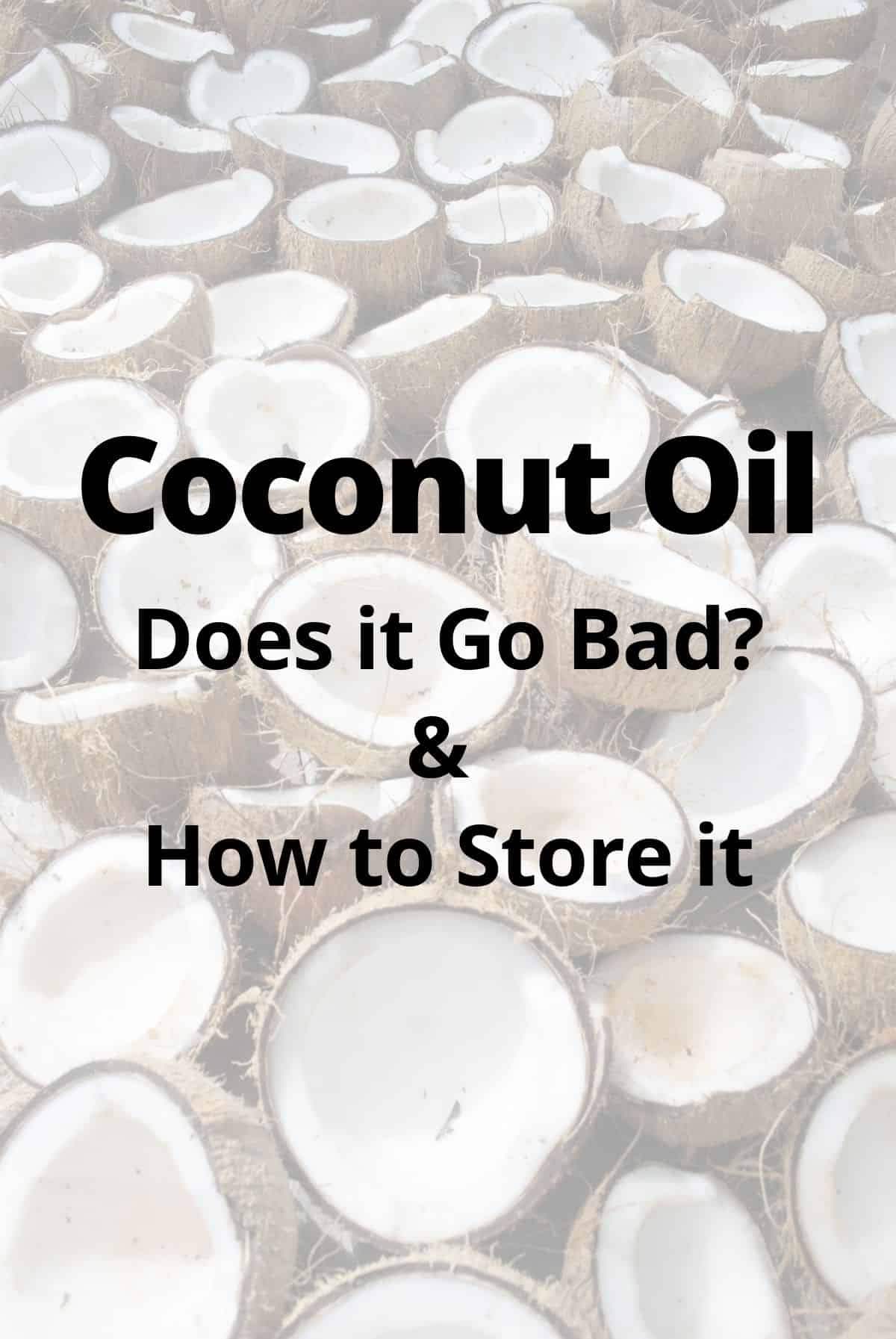
Jump to:
- What is Coconut Oil
- Uses for Coconut Oil
- Nutrition Facts
- Does Coconut Oil Expire? The truth revealed
- How long does coconut oil last once opened?
- How to properly store coconut oil to prolong freshness
- Can you freeze coconut oil?
- How can you tell if coconut oil has gone bad?
- How to dispose of expired oil
- More popular questions answered
What is Coconut Oil
Let's start with what coconut oil is before diving into it more. It's an edible cooking oil that comes from the wick, fresh coconut meat, and milk of the coconut fruit itself.
Naturally, it's a white solid fat but changes consistency when the temperature changes. When the oil melts it turns into a thin and clear liquid form that is great for cooking things in.
There are two general types or varieties of coconut oil, refined and unrefined.
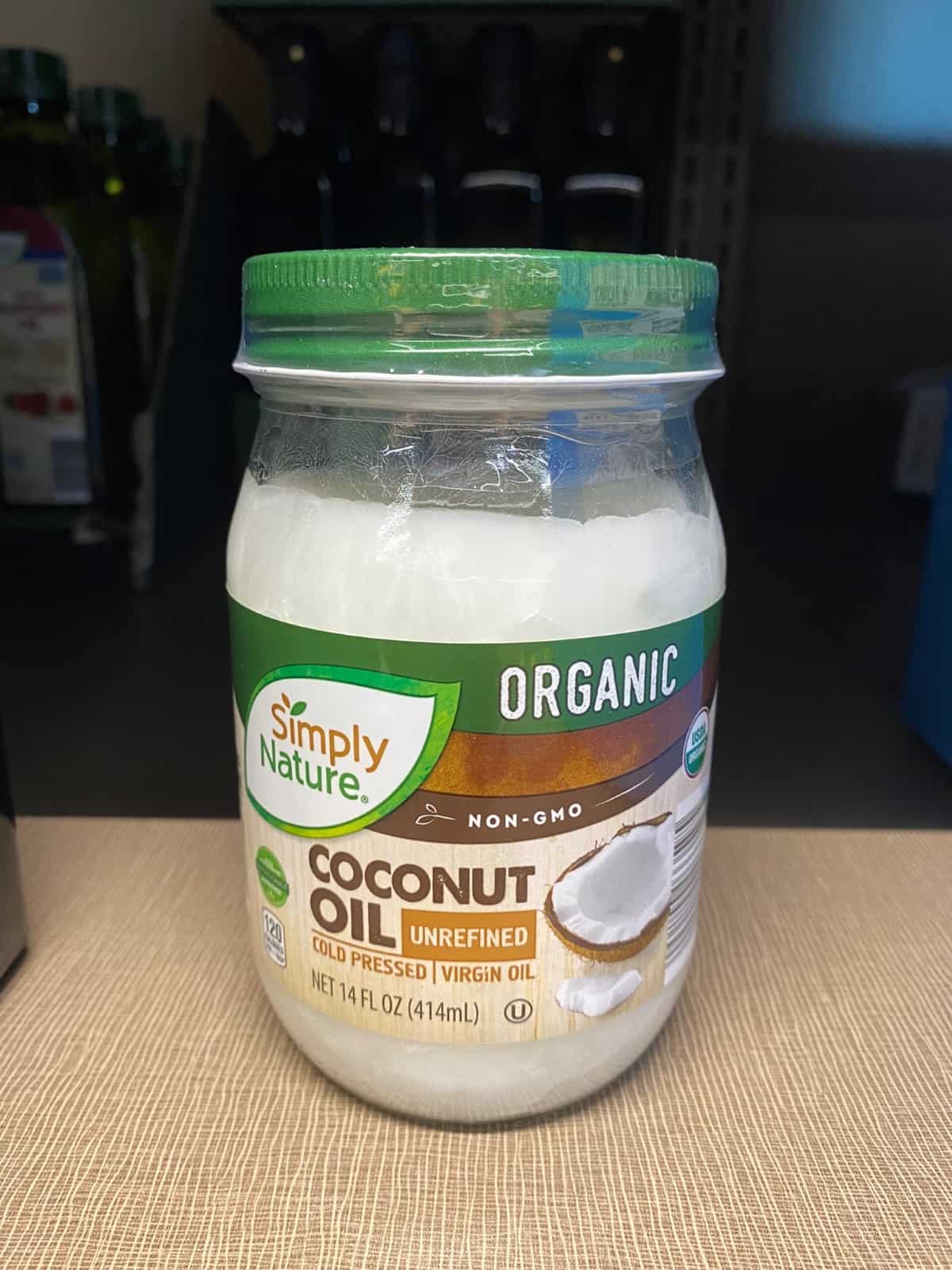
The nutritional info is similar between the two, but there are some distinct differences.
Unrefined oil is extracted from the meat or flesh of a mature coconut. Once removed, it is no longer processed and preserves the freshness of the coconut taste and smell. It is also sometimes called virgin coconut oil and you'll see the names used interchangeably.
You may also see cold-pressed on an unrefined coconut oil label, that's just a distinguishing factor between unrefined and refined oil.
If you don't enjoy the taste of coconut, I would suggest steering clear of using unrefined coconut oil in any of your recipes.
Refined oil also comes from the flesh of the coconut but then it undergoes quite a bit of processing.
The refining process changes unrefined oil to refined oil by removing any excess natural gum. This neutralizes the oil by removing the free fatty acids to lower the risk of oxidization and spoilage. It also deodorizes by removing most of the natural smell and taste leaving the oil with neutral taste and smell.
Unfortunately, you won't be able to tell if an oil is refined or unrefined just by looking at it. Both of them will have the same coloring and consistency, however, their scents, smoking points, melting point, and flavoring vary greatly.
Uses for Coconut Oil
Both refined and unrefined coconut oil have many uses and benefits.
Consuming this oil used in any of your food is believed to help improve cognitive function and metabolism, as well as improve both hair and skin health (source).
Unrefined coconut oil is preferred in sauteing recipes as it has a lower smoking point, a stronger coconut flavor and scent compared to refined coconut oil.
If you're considering coconut oil, it's important to remember the different types and grades as some are great for sauteing food, searing, and even frying food.
Baking with refined oil is preferred as it can withstand high temperatures because of the high smoke point, better than unrefined. I love making my banana brownies and vegan peanut butter cups with refined coconut oil.
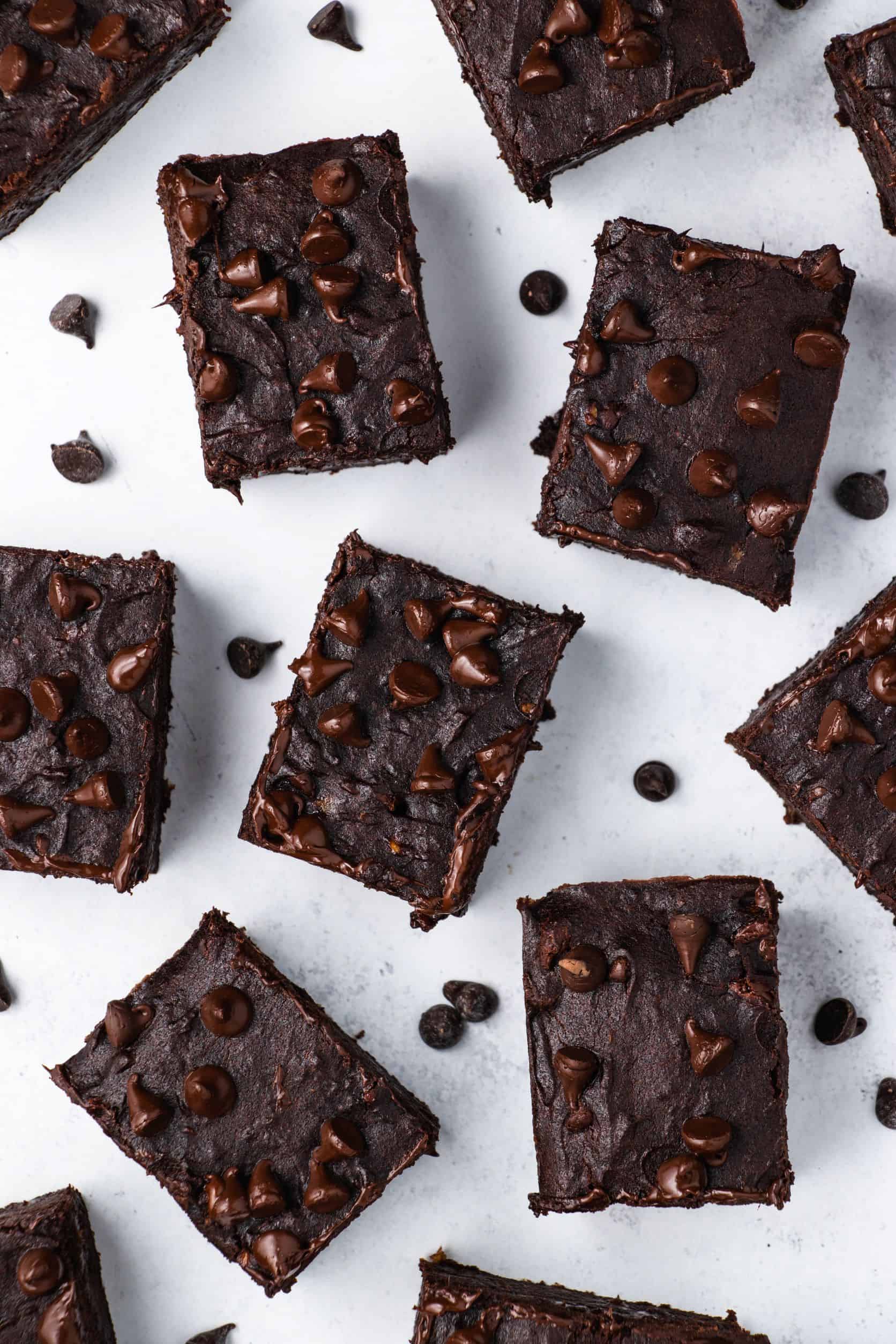
Swapping out vegan butter and using refined coconut oil to grease your griddle or frying pan is what I prefer to use when making vegan buckwheat pancakes or homemade, fluffy vegan banana oat pancakes.

Baking with coconut oil is a great substitute for butter, when compared to other oils like canola or vegetable oil. However, be sure to use a tested recipe as it cannot always be swapped out.
When choosing between refined oil versus unrefined oil, it's important to think of the flavor profile of the dish you're creating.
Would the flavors of what you're baking or cooking clash with a sweet coconut flavor you'd get when using unrefined oil, or would you need it to be more neutral tasting like you would get from refined coconut oil?
Keeping this is mind will help you choose which type of oil you want to use for that recipe.
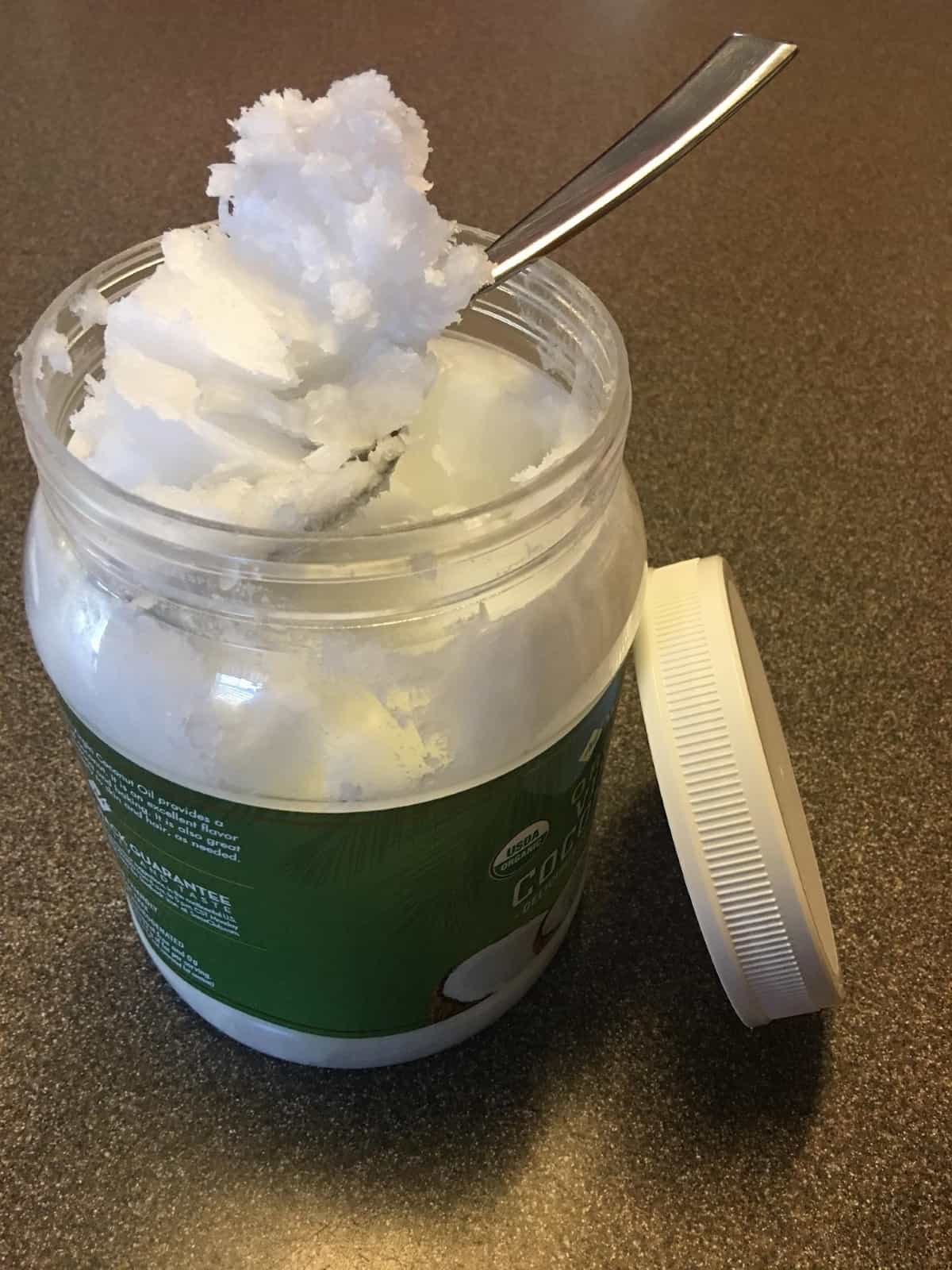
Nutrition Facts
In my opinion, using coconut oils is a healthier oil source to use in vegan recipes, especially compared to canola or vegetable oils.
For example, looking at 1 tablespoon of oil, you'll find it has 121 calories, 0 grams of protein, 13.5 grams of fat (11.2 grams being saturated fat), and 0 milligrams of cholesterol.
It's also a source of Vitamin E, but lacks other vitamins, minerals or fiber.
Coconut oil is almost all fat, being 90% saturated fat, and is made up of a high number of medium chain fatty acids (also great for helping with good cholesterol). These fatty acid chains are harder for your body to convert into fat to be stored, which is why coconut oil is known to be a healthier alternative.
Studies suggest that we treat the saturated fat in this oil just as we would in any other oil and use it appropriately and sparingly(source).
Does Coconut Oil Expire? The truth revealed
Now, let's address the burning question: does coconut oil expire? The answer is yes, coconut oil does have a shelf life. However, unlike many other oils, coconut oil has a remarkably long shelf life due to its high saturated fat content. When stored properly, it can last for years without going bad.
The expiration date printed on the label of your oil jar is an indication of when the oil is expected to start deteriorating in quality. This means that after the expiration date, the oil may not taste as fresh and may lose some of its beneficial properties. However, it doesn't necessarily mean that it is unsafe to consume or use.
How long does coconut oil last once opened?
Depending on which type of oil you're using, how long your coconut oil can last will vary.
One of the reasons refined coconut oil is so popular is because of its naturally long shelf life. Usually, this oil lasts about two years if stored properly.
Always check the expiration date on the jar of coconut oil, but know that you can extend some types slightly.
Refined oil can last up to 2 years when stored properly. Virgin coconut oil has an even longer shelf life and can last up to 5 years when properly stored.
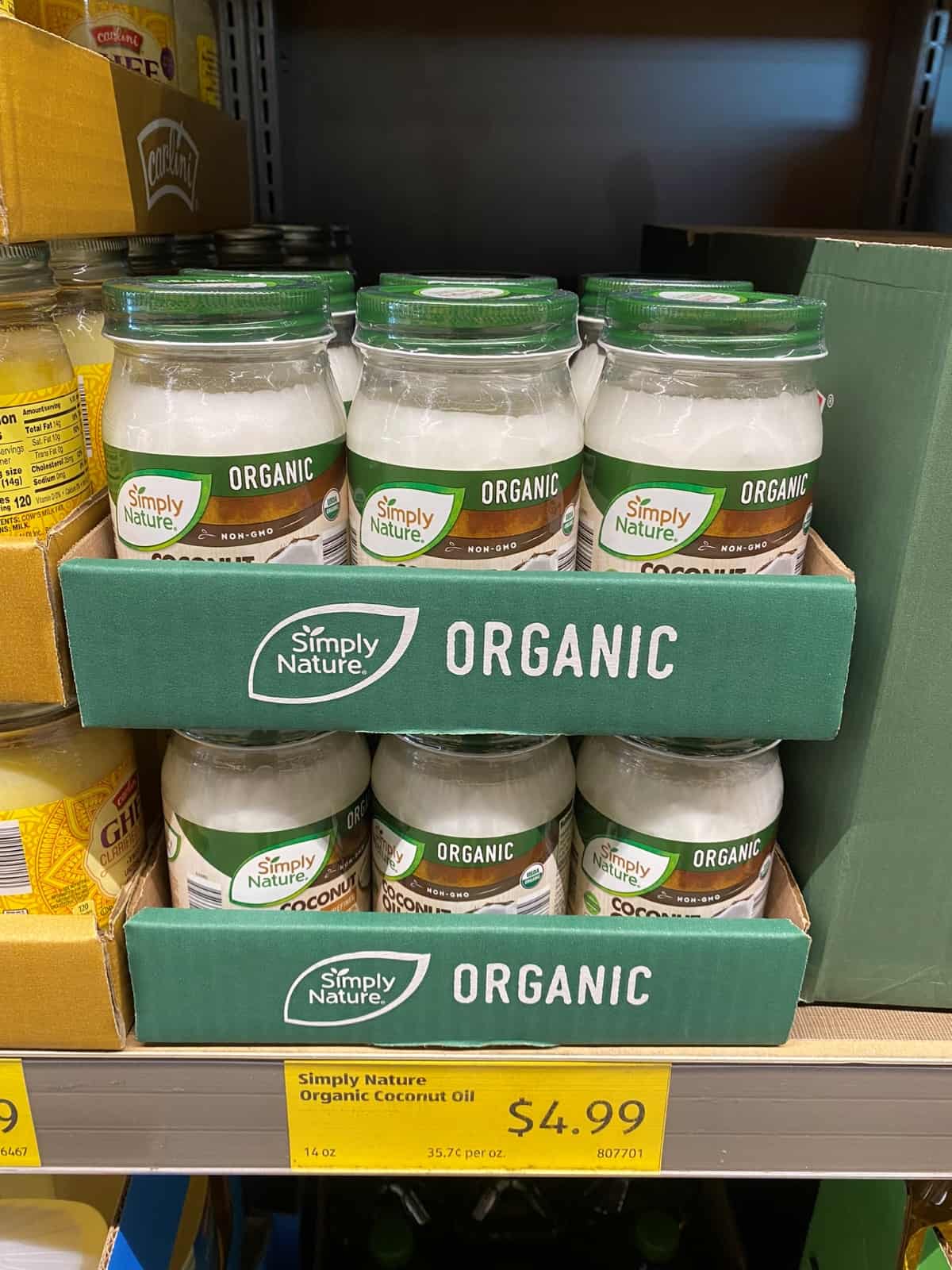
How to properly store coconut oil to prolong freshness
Storing your oil correctly is the key to maintaining a nice and long shelf life.
Oil that is stored incorrectly will go rancid faster, so make sure you're following all necessary precautions and look out for the signs of spoilage shared below.
Tips on Storing
- Minimize Heat: Store it in a cool, dark place, not in direct sunlight. Too much exposure to direct light, increased heat, and even air exposure can make your oil go bad. Room temperature oil will be in its liquid state and refrigerated will turn back to its solid form.
- Keep it Cool: Whichever method you choose for storing, make sure the temperature stays consistent and it's a consistently dry place. Too many drastic changes in temperature will create chemical reactions in the oil and will decrease the shelf life and spoil faster.
- Use Dry Utensils: Always be sure to use a clean spoon when scooping your oil from the container. Unclean utensils may have contamination on them that can cause the formation of mold on the oil.
- Use Airtight Containers: Since oil exposed to air will go bad faster, always be sure to close or seal the lid on your coconut oil. Store the oil in a glass jar or see through jar when you can. This will let you see if the oil is starting to go bad easier.
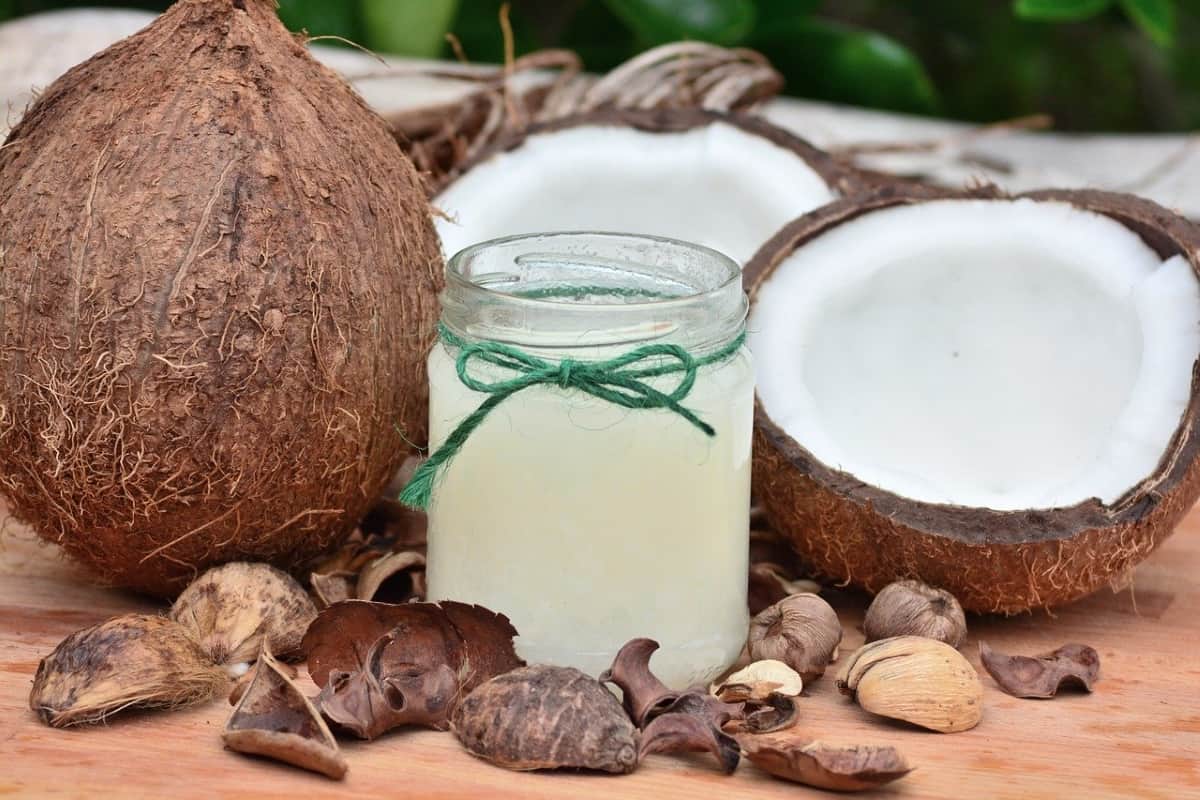
Can you freeze coconut oil?
Yes, You can extend the coconut oil shelf life EVEN LONGER than before by storing it in a freezer-safe container in the freezer.
When stored this way, your oil can last 2-5 years making this the longest shelf life for storing oil.
When you need to use it, just remove some oil, and place it in a container in the fridge to thaw before using.
How can you tell if coconut oil has gone bad?
There are various ways to tell when you have rancid coconut oil. Here are some signs to look for using your different senses:
- Color: If your oil has a yellowish color, that's a sign of spoilage. Good oil should still have clear or milky white coloring.
- Consistency: If your oil has become chunky and no longer has a smooth consistency it's not safe to use.
- Spots: If the oil has dark spots or black spots, that could be mold developing indicating that you need to toss the oil.
- Aroma: If the oil has a strong bitter or sour smell it's bad. Refined oil that's still good should have a mild, neutral scent and extra virgin oil should have a sweet coconut smell. If your oil has an unpleasant smell, it's smarter to be safe and throw it out.
- Taste: If the oil tastes sour, toss it. Refined oil that's still good will have a neutral taste, like the scent and unrefined will still have it's coconut sweet flavor.
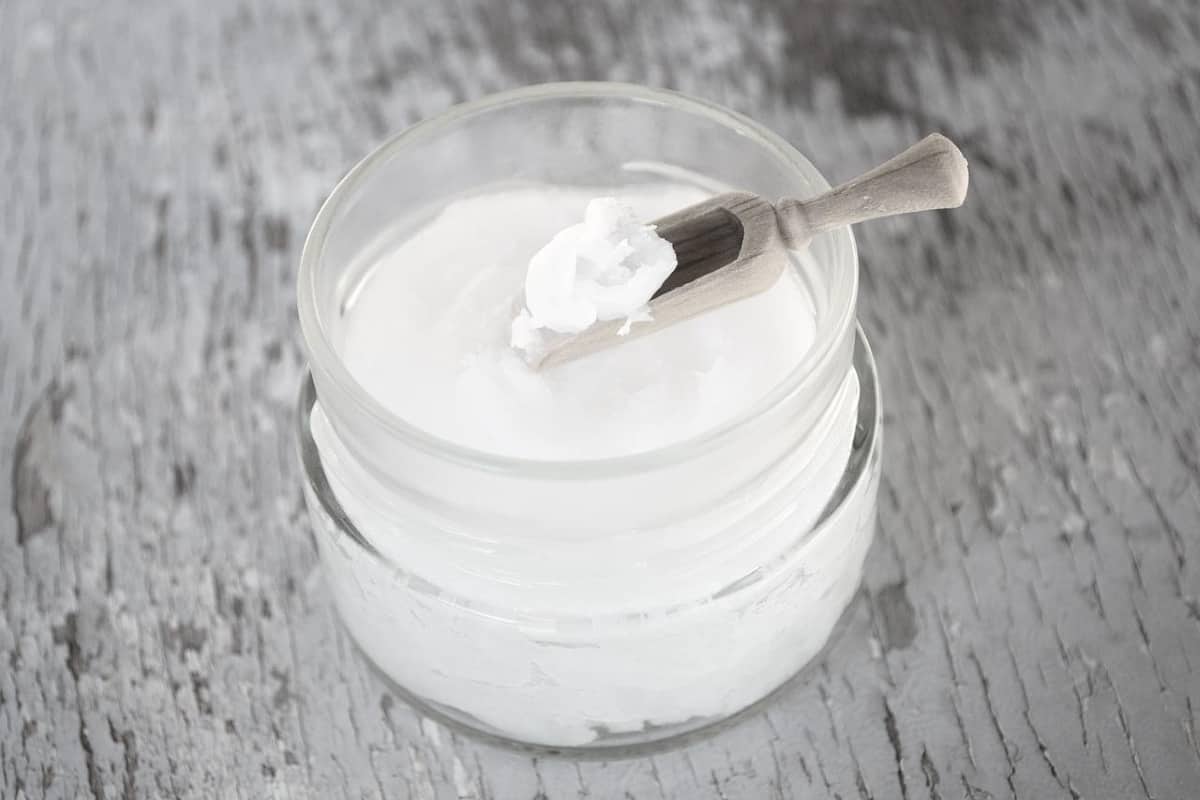
How to dispose of expired oil
It is important to dispose the oil responsibly. Pouring it down the drain can cause blockages and environmental harm. Here's how you can dispose of expired coconut oil:
- Solidify the oil: If your coconut oil is in a liquid state, allow it to solidify by placing it in the refrigerator. This will make it easier to handle and dispose of.
- Place into a sealed container: Once solidified, use a spoon or spatula to scrape the coconut oil into a sealable container. Make sure the container is properly sealed to avoid any leaks or spills.
- Check local regulations: Contact your local waste management facilities or check their website to find out the proper method of disposal for used cooking oils. Some areas have specific recycling programs or drop-off locations for used oils.
By disposing of expired coconut oil responsibly, you are not only protecting the environment but also preventing any potential plumbing issues.
Now that you know all this useful coconut oil information, I can't wait to hear what you used it in. Share your favorite recipes using coconut oil in the comments below!
More popular questions answered
- Is cocoa butter vegan?
- How long does quinoa last?
- How long does hummus last?
- How long does tofu last?
- What dairy-free drinks are at Starbucks?
Note: This post is for informational purposes only and is not intended to serve as medical advice. Please consult your healthcare provider regarding your specific health conditions, concerns and diet.
©Watch Learn Eat. All content and images are copyright protected, and are not to be used or republished without prior permission. You may; however, link back to this post on your website as a reference tool. Some images shown in this post are used with permission as part of Creative Commons CCO through Pixabay.com.


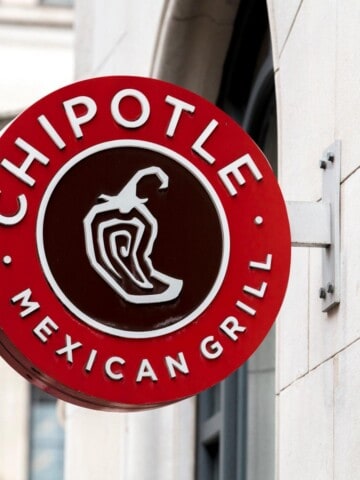


Leave a Reply